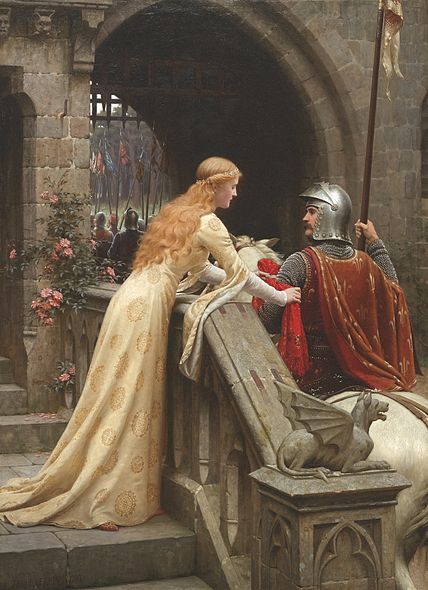InVinoVeritas
Adventurer
You can go one further, if you want to de-emphasize the combat focus in D&D, which I've very successfully used and seen used by others. Rather than awarding XP for killing things, simply award a certain amount of XP every session, irrespective of what the PCs do. That has a lot of major advantages, as I see it. It completely frees up players to have their PCs do whatever they want them to do and enjoy, without it impacting their character's progression. You want your character to go kill a dragon? To go shopping? To design a better mousetrap? To go to the queen's ball? Go ahead. You'll still get the same amount of XP for it. It also doesn't privilege one particular mode of playing the game (combat) over any other, but leaves the players free to decide what mode matters to them and also allows them to switch modes constantly as they decide.
From a DMing standpoint, it frees you up from having to worry about anything to do with XP other than the question, "How fast do I want my PCs to level up?" And then you award XP at the rate you want them to level. Simple and easy. Everyone wins. I do this now when I DM and have for years, and I'll never use any formulaic system again as long as I game. And I've seen many other DMs use it (some on my suggestion) and they all seem to consider it the best method of assigning XP.
So if you go the direction you're suggesting, I'd recommend the above.
I'll consider that, and take it further:
The number of XP awarded each game is zero.
Since gaining levels grants you little outside of combat capability, it might be better just to divorce that aspect of the game from the level treadmill entirely. What's +BAB if you never pick up a sword? More HP if you make sure no one ever attacks you?
Also, to talk about other people's points on that the game shouldn't try to expand from its base:
Maybe it should, maybe it shouldn't. However, I feel that improving on the combat rules for streamlined play is not the best direction for the game to go--if I'm looking for pure leveling and combat goodness, WOW will satisfy that need quite easily. The lure of D&D over and above WOW is in the ability to create your own worlds, explore lifestyles of your own creation, develop oneself in creative ways. D&D and other TTRPGs are all about getting a bit of Tea Party in your Cops and Robbers.
Let's consider one of the sources of fantasy: the Pre-Raphaelites.

Right now, the game does a great job of making the knight a PC. Would we be able to attract more players to the game if the game also had rules for playing the lady as a PC?
I ask because I think there's an opportunity here. There are other House games out there, like The Sims, but they don't hold that fantasy mystique. There are other fantasy games out there, but they focus on the Epic Hero. It doesn't seem to me to be too much more a stretch of the imagination to include the PC lady (and no, making an Aristocrat doesn't cut it). It can be attractive to both sides, like Crouching Tiger, Hidden Dragon. There's a wealth of fun an competition to be had in societal dances, power brokering, acquisition of the exotic, and romance.
After all, Tea Party is never about the tea.


